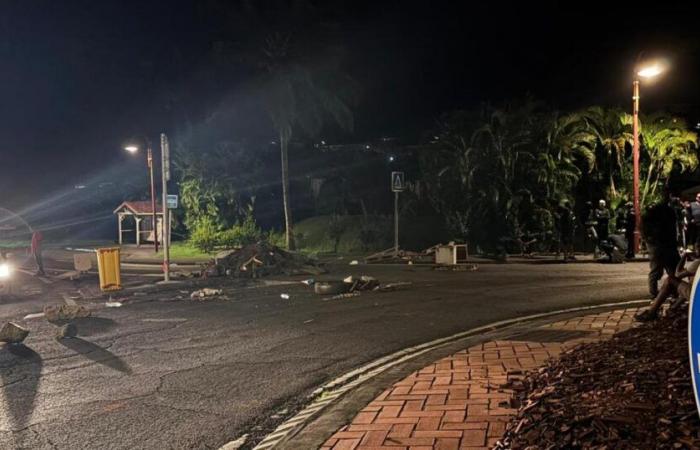Necessary to restore order according to the authorities, a hideout for others, these administrative police measures prohibiting movement at night have become commonplace in the event of a problem, while this restriction on the freedom to come and go remains the exception in mainland France.
The New Caledoniawhere a reform contested by the separatists and now abandoned has triggered unprecedented unrest, has been living under curfew for six months.
The measure initially applied only to the urban area of Nouméa, from 6 p.m. to 6 a.m., coupled with other prohibitions such as the sale of alcohol. Imposed on May 14 after hours of looting and burning of public buildings, it was extended to the entire territory and constantly renewed, although recently lightened.
In a very different context, other French overseas territories, overwhelmed by delinquency and insecurity in a context of high poverty, are resorting to curfews.
In Mayotte, to fight against theft
HAS Mayotteneighboring island of Comoros in the Indian Ocean, the town hall of Bandrélé decreed it to fight against thefts.
In Guadeloupe, in the West Indies, the prefect initiated the measure in April for minors in Pointe-à-Pitre, which had become “cut-throat” according to the mayor. He then extended it in October to other municipalities after new unrest and insecurity aggravated by power cuts.
In Martiniqueanother West Indian territory, the authorities responded in mid-September to a social movement against the high cost of living with a curfew on part of the department, and extended everywhere a month later to contain a resumption of violence.
“Everyone understands the need for exceptional measures to restore order,” explains Didier Laguerre, mayor of Fort-de-France, capital of Martinique, “relieved that this will help calm the situation.”
The curfew was adjusted in his city to be less penalizing for economic activity, restaurants, concerts and other leisure activities, then lifted on November 5.
“The curfew alone does not solve the problem” and “we also need security reinforcements, daily means of investigation,” he said, and “when the night curfew lasts, it 'is problematic.'
“Much more serious violence”
Appearing in the Middle Ages to prevent fires, the curfew has been activated in France on rare occasions in recent history, from the German occupation to the Algerian War, the riots of 2005 or the Covid pandemic -19.
Since 2022, there has been an increase in curfews, particularly concerning minors, notes Marie-Odile Diemer, lecturer in public law at Côte d'Azur University, but this remains very punctual in mainland France, compared to the territories. from overseas.
In these territories, “events break out on dimensions which seem to have no common measure with France”, “the economic and social considerations are different and the violence appears much more serious because it is assimilated to the whole territory”, she says .
The extent of the damage, the weapons used, the latent risk are enough to justify an extension.
“If curfews can be very punctual, they are repeated because problems are not resolved,” said Ms. Diemer, according to whom this measure is activated “automatically, like an umbrella” and “hides everything that is not is not done, in particular prevention and education measures.
Justice seized in the Antilles
To Antillesthe courts were contacted to verify that the curfew was not excessive.
But in this area, the case law is “impressionist” and “it’s really case by case”, summarizes Roseline Letteron, professor of public law at the University of La Sorbonne. The insufficient nature of the police forces in a given territory is an element of appreciation, she said.
“The curfew should not be rejected in principle provided that it is proportionate, obviously, and above all, that it is accompanied by the means to enforce it,” insists Olivier Nicolas, first secretary of the Socialist Federation of Guadeloupe.
“The curfew without the means to enforce it is almost the freedom given to our delinquents to act,” he adds, seeing in the conflagration in Guadeloupe a sign “that something else is needed “. “The population is constrained, but the solutions to the problems are not there.”






